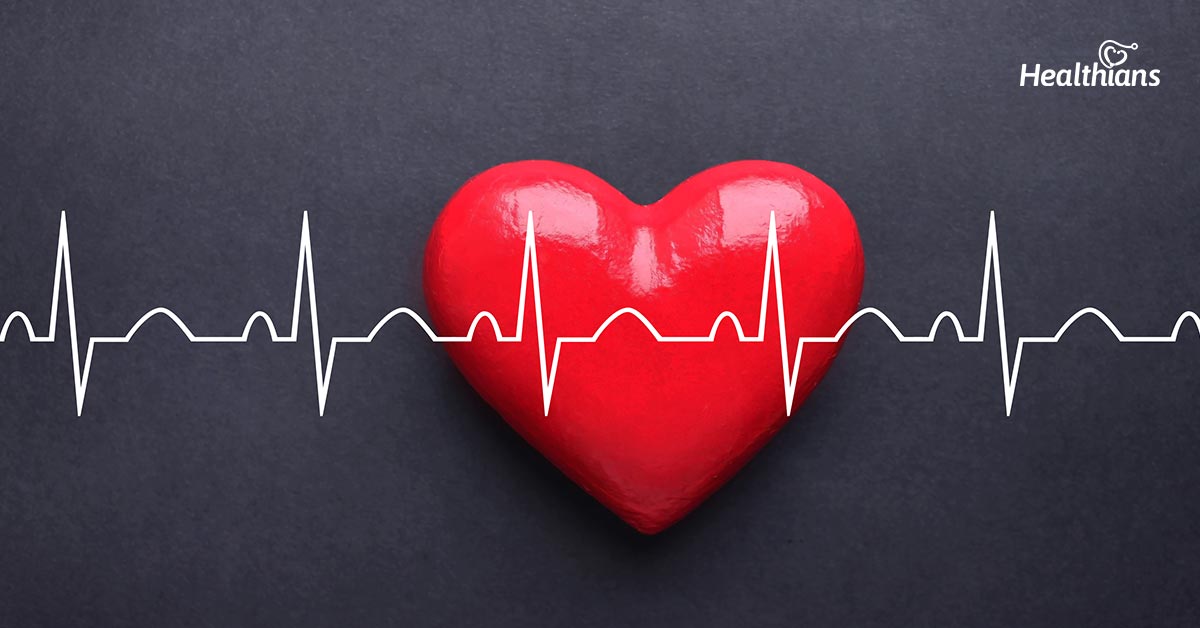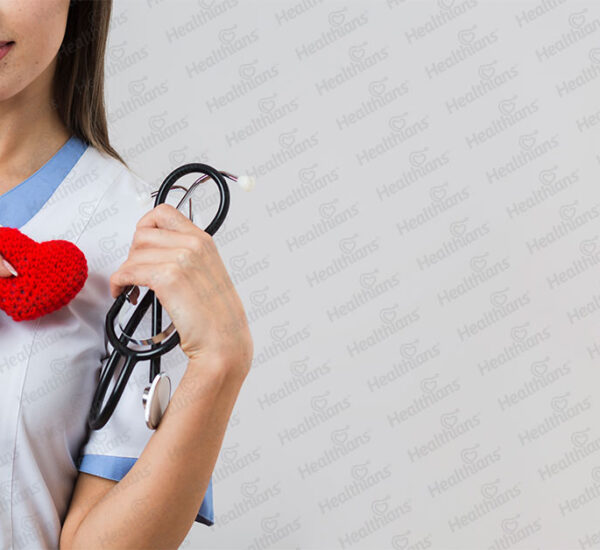Contributed by – Healthians Team
Hear your heart. Heart your health!
Do you ever feel an abnormal beating of your heart, much faster than its normal pattern, a strong pounding of your heart against your chest, giving you a feeling that your pulse is in your neck or chest? Well, you might be experiencing heart palpitations.
Heart is the most vital organ that pumps blood throughout the body through its amazing network of arteries and veins. Heart, although small in size, plays a huge role in our survival. Even slight heart problems can lead to serious complications. Listening to your heart beats can help detect many warnings that the heart gives out. Heart palpitations may seem alarming but are generally not serious or a cause of worry. Though, they are not considered a sign of any serious health issue, knowledge of the causes of heart palpitations and the ways to deal with them, is the first step towards a healthier heart.
What are heart palpitations?
Heart palpitations are defined as the sudden, abnormal and noticeable sensation of an irregular, hard or rapid heartbeat. Heart rate or pulse is the number of times our heart beats per minute:
- Normal heart rate: For a resting adult it ranges from 60-100 beats per minute
- Heart rate is fast (tach cardiac): For a resting adult the heart rate can be greater than 100 beats per minute
- Heart rate is slow (Brady cardiac): For a resting adult the heart rate can be slow as 60 beats per minute
Heart rate depends on the age, size, medical conditions, heart problems etc. of an individual. Knowledge about your heart rate helps you understand and monitor your health better.
What are the symptoms of heart palpitations?
Heart palpitation can be really worrisome or alarming but do not always indicate something serious. The common symptoms are:
- heart skipping beats
- heart beating too fast /faster than it usually beats
- pumping harder than usual
- shortness of breath
- dizziness
- chest pain
- fainting
What are the causes of heart palpitations?
A lot of factors can act as triggers of heart palpitations and quite often the causes of these can’t be found out. The main heart palpitation causes include:
Lifestyle conditions:
Various everyday habits can lead to heart palpitations:
- excessive caffeine, tea and energy drinks intake
- alcohol consumption
- smoking
- strenuous exercise
- consumption of drugs like cocaine, heroin, cannabis etc.
- eating spicy and oily food on a regular basis
Emotional factors:
Strong emotions can often lead to increased heart rate and palpitations. Emotions like:
- extreme excitement
- stress
- nervousness
- anxiety can lead to a panic attack and heart palpitations.
Medications:
Certain medications like:
- asthma inhalers
- antibiotics
- antidepressants
- antihistamines
- high blood pressure can also cause heart to beat faster.
Medical conditions :
There are certain underlying medical conditions that can cause heart palpitations:
- Anaemia (reduction in the numbers of red blood cells)
- Over active thyroid: where thyroid glands overproduces thyroid hormones
- Low blood sugar: generally in the case of diabetics
- Dehydration (lack of fluids in the body)
- High blood pressure
- Fever
- High cholesterol
Hormonal changes that are mostly associated with:
- menstruation
- pregnancy and
- menopause
Heart problems: Heart palpitations are one of the major symptoms of various heart conditions like:
- coronary heart disease
- heart attack
- congenital or birth defects of heart
- heart valve problems
Heart palpitation after eating food:
Some people might experience palpitation after having a:
- heavy meal
- meal rich in carbohydrates, sugar or fat
- oily and spicy food
Heart palpitation when lying down:
Palpitation can easily be felt when lying down on the left side. Lying on the left side, the apex of our heart is close to the chest wall, this makes you more aware of the palpitation.
When to call a doctor or get emergency help?
Palpitations which are infrequent and last only for few seconds mostly don’t require any emergency evaluation. But immediate doctor consultation is required in case of frequent or continuous heart palpitations accompanied with:
- Chest discomfort or pain
- Fainting
- Severe shortness of breath
- Severe dizziness
- Patient has a history of heart diseases
What to do in case of irregular heart beats?
Various questions like how long do these heart palpitations last, what has to be done in case of frequent heart palpitations are common. Palpitations can be irregular and can go by the time you reach the doctor. What is to be done now?
Once you reach the hospital, proper diagnosis of your problem and treatment will start which includes:
- a detailed study of medical history, family history and the patient’s life style details
- an ECG will be performed, which is the first step to monitor the heart
- Echocardiogram is another important step
- Stress test may be advised by the doctor
How to stop or control heart palpitations?
Infrequent heart palpitations can be managed, so it is of utmost importance to know how to deal with them. Given here are few quick tricks to calm your heart beats.
Relaxation techniques: Various relaxation techniques can help a lot in getting rid of stress or anxiety.
Vagal maneuvers: Vagal nerve connects the brain with the heart and thus plays a vital role in heart palpitations. Vagal manoevurs help in stimulating the vagus nerve which in turn helps in regulating the fast heartbeat rate. It basically includes tricks like:
- taking a cold shower
- splashing cold water on the face
- applying cold towel or ice pack on the face for 20-30 sec
- chanting the word “OM”
- coughing or gagging
- holding your breath
- drinking water to keep the body hydrated
- restoring the electrolyte balance of the body by having banana, sweet potato, dairy products
- avoiding the intake of caffeine, alcohol, tea and energy drinks
- avoiding stress
Note: If heart palpitations are frequent or are accompanied with chest pain, visit the doctor immediately.
Keep watch over your heart. It is where life starts! So, pay attention to your health and stay heart healthy.





Thank you so much Dr.Pooja for sharing the valuable information. On of my friend lost her dad due to heart attack and that was really a shocking for the family and hard to accept.